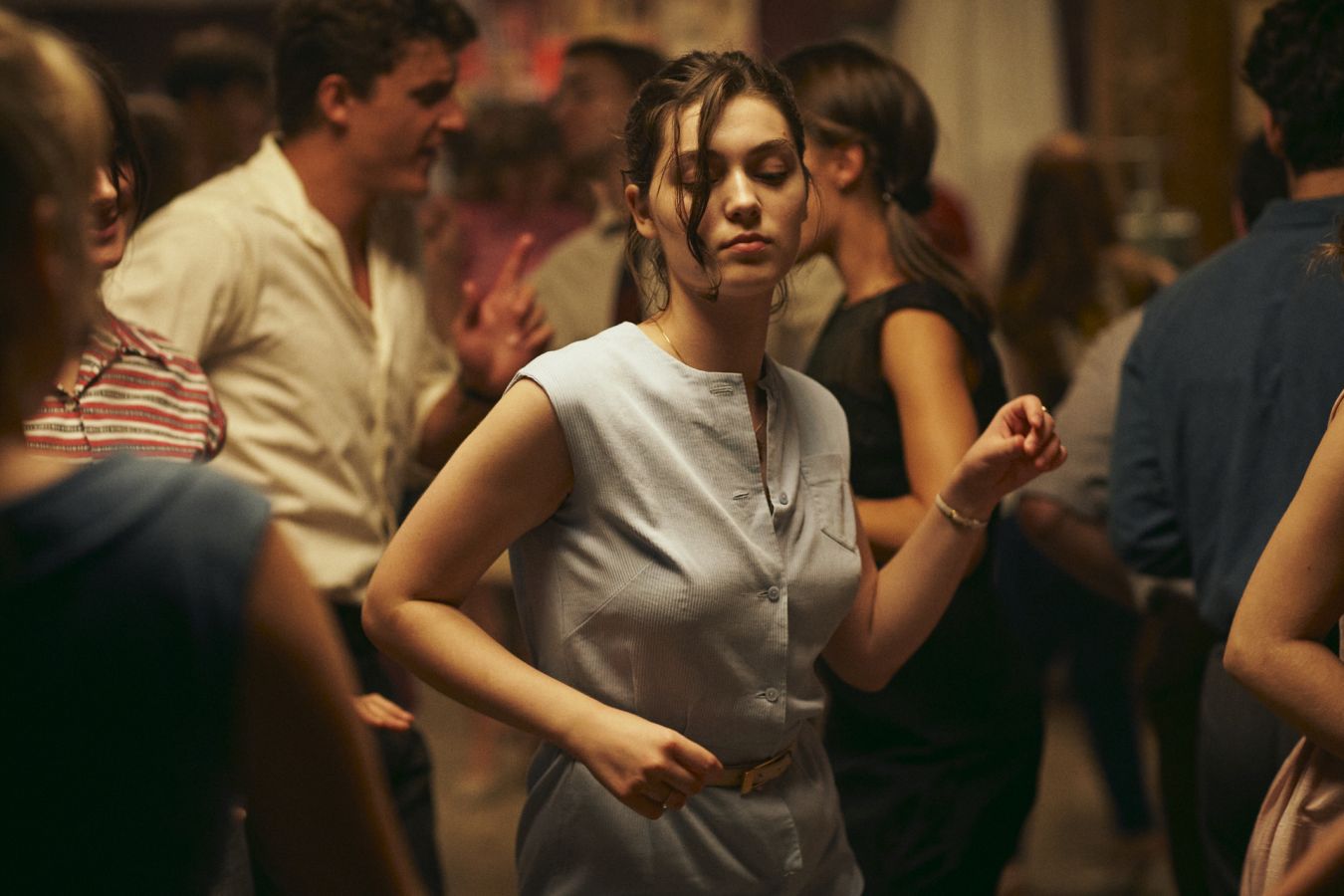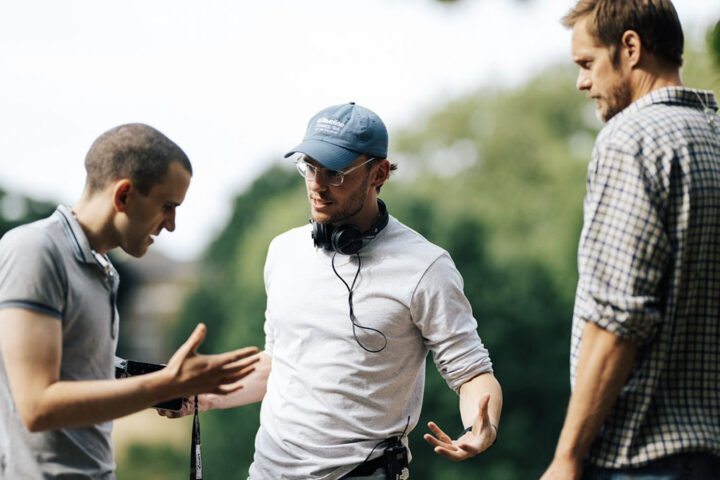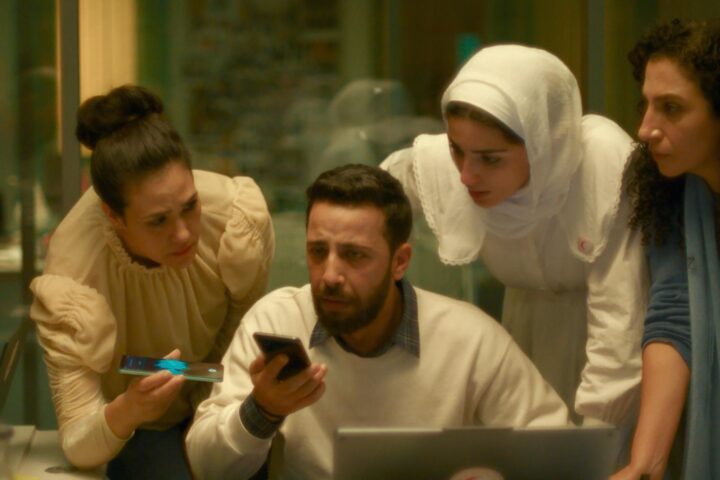It would be difficult to name a picture more inadvertently in the zeitgeist than Audrey Diwan’s riveting Venice festival winner Happening, the sobering tale of a 1963 French high school student whose dreams of being a writer are disrupted by an inconvenient pregnancy. At a time when a young woman’s only option was to merely “accept it” and face ridicule, expulsion and ill-prepared motherhood, abortion was not only not spoken of but illegal, punishable and life-threatening. For the heroine of Diwan’s remarkable picture, a working class, top of her class student, the notion of domesticity supplanting a promising future is equally life-threatening.
Given the recent U.S. Supreme Court memo leak signaling its intention to overturn the landmark 1973 legislation legalizing abortion across America’s fifty states, Happening couldn’t be more timely and arrives with significant political and social cache, pro-and anti-choice activists embroiled in an explosive culture war that. Should the court’s decision be handed down as written, it would outlaw a woman’s right to choose in likely more than half of U.S. states and the consequences of such a catastrophe could look very much like one of the film’s most harrowing moments, a barbaric, attempted self-abortion as the only option for a young woman of no means, and one inducing psychological and physical trauma.
This is the frightening context for Diwan’s story of young Anne (a magnificent Anamaria Vartolomei), a star student with a passion for literature and dream to parlay her talents into a future life outside of the provincial town where her working class parents tend to a modest restaurant.
This future seems within reach until a doctor’s checkup reveals an unexpected pregnancy, after which the picture becomes an against-the-clock drama with no easy resolution. With abortion illegal and not even able to be spoken of, the doctor advises Anne that an illicit, botched procedure could likely produce prison or death. Obviously neither is viable.
As time begins to pass (Diwan uses ominous title cards denoting weeks pregnant) Anne finds herself nearly completely without support, unwilling to share her secret with her mother (Sandrine Bonnaire in a small but effective turn) and unable to confide even in her best girlfriends, including the carefree and voluptuous Brigitte (Louise Orry-Diquéro), whose reaction after eventually learning of the news late in the picture is sadly believable.
With the odds increasingly against her, Anne soldiers on in her quest for an abortion, and in doing so her mental health and studies take a rapid decline. Unwilling to “accept” becoming a mother so young and without resources, she turns to a disingenuous doctor who pretends to offer a solution while ensuring he strengthens the embryo. Yet Anne refuses to give up control of her body, rejecting resignation in favor of forging forward, determined to beat the increasingly bleak prognosis.
Vartolomei, so clear-eyed and intelligent an actress, superbly navigates Anne’s fortitude and failures as she suffers in silence, body changing, obstacle after obstacle, with no assistance from medical professionals, friends or even the fling who got her pregnant. Diwan expertly does what all great screenwriters do, which is to raise the stakes and barriers for her protagonist to a nerve-shredding final act, in which the model and actress Anna Mouglalis, in a chillingly direct performance, appears as a cold tactician abortionist in a sequence so harrowing as to be indescribable, rendered in a static, four-minute shot at a numbingly matter-of-fact angle.
Yet, the setbacks and horrors don’t end there, and Diwan pulls no punches in a graphic picture that has blunt force impact in suggesting that while Anne’s struggle may be in 1963 France, the universality of what could happen is very much about right now.
Happening joins a handful of recent, disparate films charting the harrowing gauntlet of unwanted pregnancy and its repercussions when choice is eliminated by law, patriarchy or religion. Last year’s equally incisive Lingui: The Sacred Bonds found a disgraced single mother in Chad’s Muslim culture seeking an illegal abortion for her teenaged daughter in a world of imperious male suspicion. Filmmaker Christian Mungui’s 2007 Cannes winner 4 Months, 3 Weeks and 2 Days was a draconian, vice grip excursion into communist Romania as two female friends navigated a clandestine abortion, danger lurking everywhere. And in the 2020 American indie Never Rarely Sometimes Always, a young woman from Pennsylvania, unable to get an abortion without parental consent, travels to Manhattan and faces sobering protocols she finds profoundly affecting.
As Anne tells her literature instructor late in the film, she has been afflicted with “the illness that strikes women and turns them into housewives.” It will be up to viewers to ultimately decide how they feel about Anne’s predicament, but Diwan and Vartolomei have created a film and character that are bold, uncompromising and cautionary, as well as honest about the stark reality of where we are headed. Happening is a wake-up call and an elevated scare movie of the highest order.
4 stars



